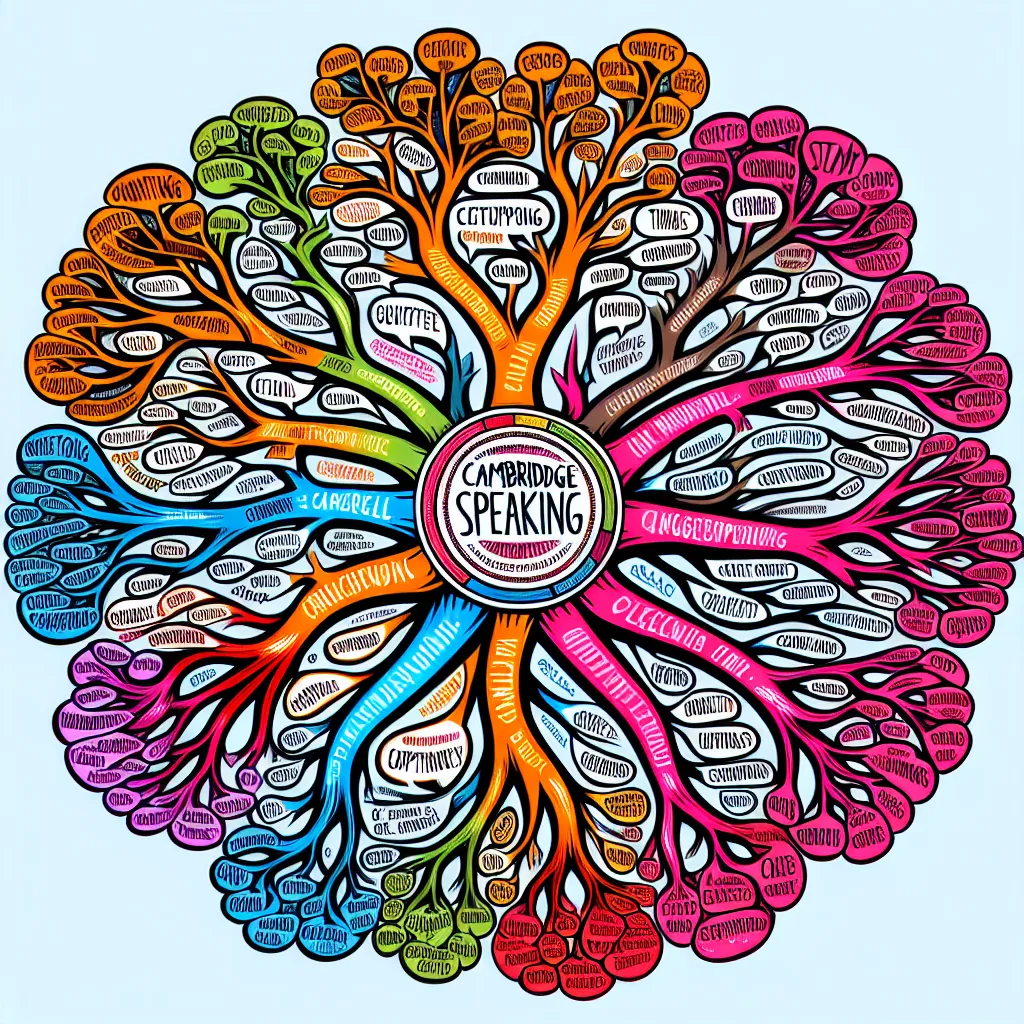Are you preparing for the Cambridge Speaking exam and looking to enhance your linguistic prowess? Mastering common idioms can significantly improve your performance and impress the examiners. In this comprehensive guide, we’ll explore a variety of idioms that are particularly useful for the Cambridge Speaking test, along with tips on how to use them effectively.
Why Idioms Matter in Cambridge Speaking
Idioms are an essential part of the English language, reflecting cultural nuances and adding color to your speech. In the context of Cambridge Speaking exams, using idioms appropriately can:
- Demonstrate a higher level of language proficiency
- Show your ability to use natural, native-like expressions
- Enhance the overall quality and fluency of your responses
Let’s dive into some of the most common and useful idioms for your Cambridge Speaking exam.
 Cambridge Speaking Idioms
Cambridge Speaking Idioms
Essential Idioms for Cambridge Speaking
Time-Related Idioms
-
In the blink of an eye: Very quickly or suddenly
Example: “The summer holidays passed in the blink of an eye.” -
Once in a blue moon: Very rarely
Example: “I only visit my hometown once in a blue moon.” -
Beat the clock: To finish something before a deadline
Example: “We had to beat the clock to submit our project on time.”
Work and Study Idioms
-
Burn the midnight oil: To work or study late into the night
Example: “During exam season, I often burn the midnight oil to prepare.” -
Learn the ropes: To learn how to do a job or task
Example: “It took me a few weeks to learn the ropes at my new internship.” -
Hit the books: To study intensively
Example: “With exams approaching, it’s time to hit the books.”
Relationship and Communication Idioms
-
Break the ice: To start a conversation or make people feel more comfortable
Example: “The team-building activity helped break the ice among new colleagues.” -
See eye to eye: To agree with someone
Example: “My roommate and I don’t always see eye to eye on household chores.” -
Keep someone in the loop: To keep someone informed
Example: “Please keep me in the loop regarding any changes to the project schedule.”
Success and Achievement Idioms
-
Hit the nail on the head: To describe exactly what is causing a situation or problem
Example: “You’ve hit the nail on the head with your analysis of the economic situation.” -
Go the extra mile: To make an extra effort
Example: “Our teacher always goes the extra mile to help us understand difficult concepts.” -
Raise the bar: To set a higher standard
Example: “The new world record has really raised the bar for future athletes.”
How to Use Idioms Effectively in Your Cambridge Speaking Exam
-
Context is key: Use idioms in appropriate situations. Don’t force them into your speech if they don’t fit naturally.
-
Practice, practice, practice: Incorporate these idioms into your everyday English conversations to make them sound more natural during the exam.
-
Understand the meaning: Make sure you fully grasp the meaning and usage of each idiom before using it in the exam.
-
Don’t overuse: While idioms can enhance your speech, using too many can sound unnatural. Aim for quality over quantity.
-
Pronunciation matters: Pay attention to the correct pronunciation of idioms, as some may have tricky stress patterns or silent letters.
Common Mistakes to Avoid
-
Mixing up idioms: Be careful not to combine different idioms or use them incorrectly. For example, don’t say “It’s raining cats and dogs and dogs” instead of “It’s raining cats and dogs.”
-
Using outdated or regional idioms: Stick to commonly used, contemporary idioms that are widely understood.
-
Explaining the idiom: In the exam, use the idiom naturally without feeling the need to explain its meaning, as this can disrupt the flow of your speech.
Practical Tips for Incorporating Idioms in Your Responses
-
Part 1 (Introduction and Interview): Use simple idioms to describe your daily life or hobbies. For example, “I’m an early bird, so I usually start my day at 6 AM.”
-
Part 2 (Individual Long Turn): Incorporate idioms to make your description more vivid. For instance, “The beach was packed; it was like sardines in a can!”
-
Part 3 (Two-way Discussion): Use idioms to express opinions or agreements. For example, “I see eye to eye with you on the importance of environmental protection.”
 Cambridge Speaking Exam
Cambridge Speaking Exam
Next Steps: Mastering Idioms for Cambridge Speaking
-
Create flashcards: Make digital or physical flashcards with idioms on one side and their meanings on the other.
-
Watch English media: Expose yourself to natural usage of idioms by watching English movies, TV shows, and YouTube videos.
-
Practice with a language exchange partner: Find a native English speaker or another learner to practice using these idioms in conversation.
-
Record yourself: Practice incorporating idioms into your responses to common Cambridge Speaking questions and listen back to identify areas for improvement.
-
Take mock exams: Participate in practice tests to gain confidence in using idioms under exam conditions.
By incorporating these common idioms into your Cambridge Speaking exam preparation, you’ll be well on your way to impressing the examiners and achieving a higher score. Remember, the key is to use idioms naturally and appropriately. With consistent practice, you’ll find that these expressions become second nature, allowing you to express yourself more fluently and confidently during the exam.
Good luck with your Cambridge Speaking exam preparation, and may you knock it out of the park!




